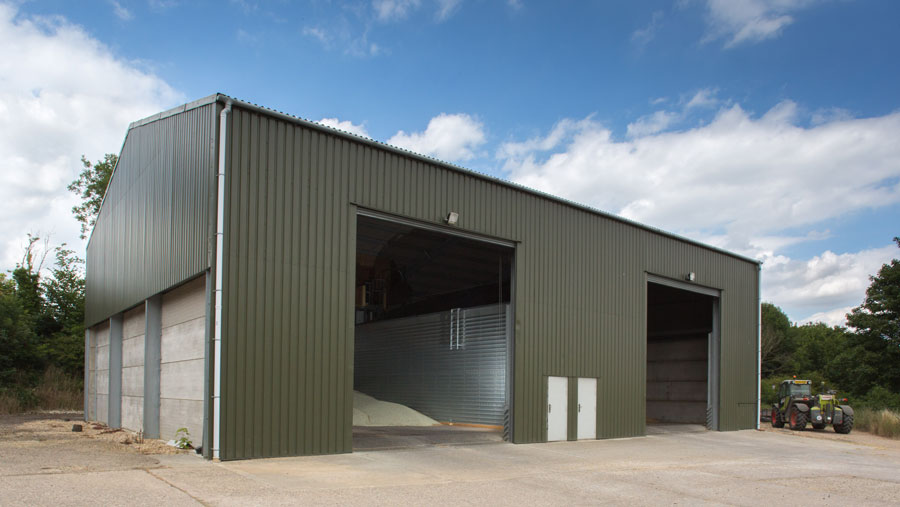VAT rules to know when offering land and buildings storage
 © Tim Scrivener
© Tim Scrivener VAT rules can be complex when it comes to the fairly simple enterprise of providing storage by letting out land or agricultural buildings.
According to the Self Storage Association, there are more than 1,900 self-storage sites in the UK and the industry has an annual turnover of £766m.
Nick Hart, director of the VAT advisory team at accountant Saffery Champness, has advised farmers and landowners that the first step to identifying the correct VAT treatment relates to the design of the facility itself.
See also: So you want to… offer self-storage on farm?
For income to be subject to VAT, storage has to be provided in a fully enclosed building unit or similar closed structure, or a container.
This means that barns, grain stores or commercial units are eligible but Dutch barns, structures that are not fully enclosed or plots of land are not.
If a farmer is VAT registered, income from the supply of a facility for self-storage is subject to VAT, even if they have not opted to tax the facility.
Building use
In some cases, a [commercial] tenant may use a building or unit to store stock or equipment, but in an ancillary way to the core business.
For example, a unit used as a retail outlet will be used in part for storing stock, but mainly as a shop, meaning the landlord has not provided the facility as storage.
Instead the supply is as letting a property, which is exempt from VAT, subject to the option to tax.
In other instances, however, it may not be immediately apparent how a tenant is using let premises and this can be where complexities arise.
Mr Hart said: “If a rental agreement does not specify the permitted use of a building or similar, then there is an expectation that the landlord should know if the facility being let is used for storage.
“Also, where the use of a facility is subject to change, its predominant use over time becomes important.”
Other complications include supplies to “connected persons” and charities, and the storage of live animals, which is specifically excluded from automatically being subject to VAT, he said.
Facility type
Providing open air space for storage or space within buildings that are not fully enclosed is not taxable under the self-storage VAT rules.
However, it could count as a taxable supply for other reasons – for example, an option to tax over the land would make the supply taxable, but where no such option has been made the supply would be exempt, provided it comprises a leasing or letting of land.
Opting to tax land or property may take away much of the uncertainty but is not always the best route, as opted land or property can become a burden on the owner at the point of sale, Mr Hart said.
“Where spare barns, or space in barns, containers or other parts of a farm or estate are made available for use for storage purposes to clients for a charge, professional advice is strongly recommended to ensure that VAT is charged and collected where applicable, and that the VAT recovery position is consistent with that,” he said.
